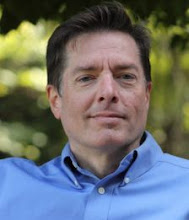Since the hearing on Capitol Hill to begin the process of potentially repealing the "DADT" (Don't Ask, Don't Tell) Policy, I've been looking at this policy and a few other military polices that have evolved during the last century and what I've found is interesting.
First, the current policy, commonly referred to as "Don't Ask, Don't Tell", is not particularly well understood. Prior to Clinton's desire to change the military's policy of rejecting Gays & Lesbians from entering the military, that's all it was, a "policy". Clinton's well intended actions actually caused congress to pass a law encoding that Gays and Lesbians cannot serve in the military. The only thing Clinton "won" was the policy of not asking a military service member about their sexual orientation, and encouraging Gay & Lesbian military service members to lie about their sexual orientation. Presumably, prior to 1993, it was more difficult for the military to discharge a service member due to their being Gay or Lesbian than it was afterward, because now they had the rule of law on their side that necessitated the service member be given a dishonorable discharge. (Section 654, Title 10, U.S.C.)
In July of 1948, President Truman issued an executive order commanding the military branches to integrate blacks and provide equal treatment and opportunity. This was very unpopular at the time. Conservatives claimed "...that integration would impair military efficiency and damage the morale of American troops."
Today, many conservatives claim that allowing Gays and Lesbians to serve openly in the military "...would undermine unit cohesion, discipline, and combat effectiveness."
To me those are different words that say essentially the same thing. Can you imagine any politician today suggesting that the US Armed Forces should segregate it's troops on the basis of race, because doing so would make the military more efficient and give soldiers higher morale?
Change is often difficult and scary; that is understood. It has been more than 60 years since the US Military was ordered to desegregate it's troops, and I think it can be argued that race still plays a role in a service members career. Women have been able to join military service (in non-combat positions), but opportunities for women in the military were broadened after the 1996 case "United States v Virginia" that opened the Virginia Military Institute to female students. Now fourteen years later, the incidence of rape and other crimes against female military personnel are embarrassingly common, however that does not mean I think it was a mistake, or that women should not be allowed to serve in the military.
I wouldn't expect that if the DADT policy were rescinded, and the law referenced above were to change such that Gay & Lesbian service members were granted equal treatment and equal opportunity, that suddenly everyone would change and current ignorance and prejudice would not cause problems. I'm certain that Gay & Lesbian service members will in some circumstances face backlash after "coming out". I'm certain that there will be Gay & Lesbian service members who will be attracted to some other same sex service members, and will even make passes. I'm also certain that there will be, have been, and are some Gay & Lesbian service members who have exemplary and distinguished careers. Some have even been awarded medals and are considered heroes.
Change may be difficult and scary, but when the change is from injustice to justice, the time is always now, and the end result is always preferable.
Subscribe to:
Post Comments (Atom)



No comments:
Post a Comment
I am interested in any and all feedback! However, I reserve the right to block or delete comments that I believe constitute "spam". That does not mean I won't respect disagreement.